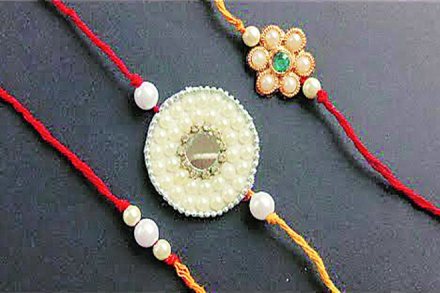The traditional wrist band, also known as Rakhi, used in the festival of raksha bandhan for depicting a bond between a sister and brother is not exempt from the goods and services tax (GST), the Authority of Advanced Ruling (AAR) in West Bengal said. Consequently, a rakhi using glass beads could attract as much as 18% GST.
While a rakhi made of only ‘kalaava’ – a mixture of cotton threads in the form of red and yellow yarn – would be exempt from the GST as its classified under ‘puja samagri’, designer rakhi assembled using zari, nylon and silk threads among other items aren’t exempt, the ruling said.
Given that rakhi is not specifically mentioned among items in the tariff code under the GST, the AAR bench relied on the interpretation rules provided by the tax research unit (TRU) of the indirect tax department.
According to the clarification, a product like rakhi, which is a product of several input without any one predominant element, would be classified under the heading which is numerically last among headings covering all the components of the product.
For example, if the constituent materials of a rakhi are glass beads, stone, cotton thread and plastic beads which fall under chapter 70, chapter 70/71, chapter 52, and chapter 39 respectively, the rakhi would be classifiable under chapter 70/71 and will attract the GST accordingly.
